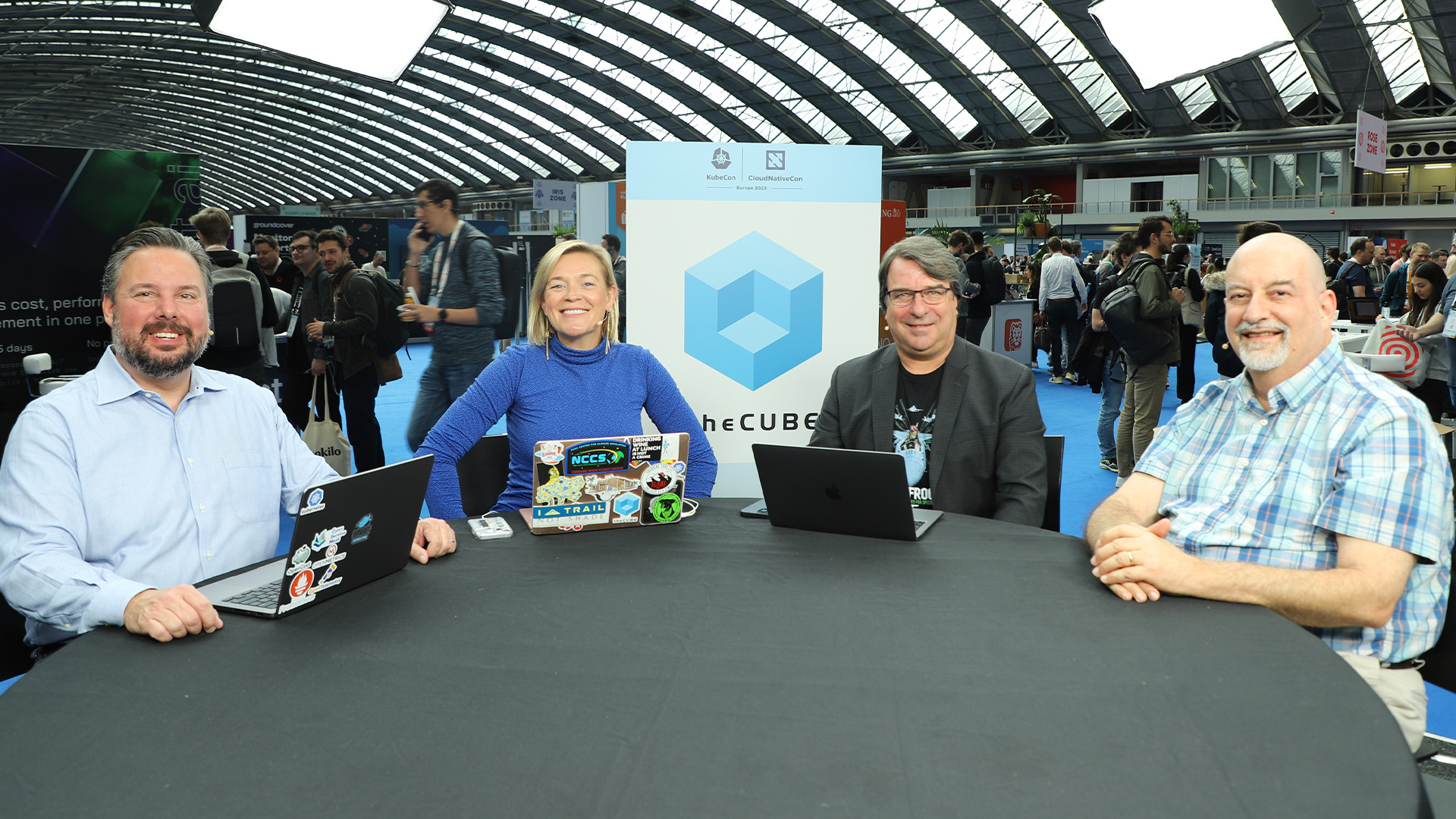 INFRA
INFRA
 INFRA
INFRA
 INFRA
INFRA
As Kubernetes continues to become an essential part of enterprise IT infrastructure, companies are looking for ways to optimize and secure their systems.
Artificial intelligence has the potential to play a significant role in this process, but for now, the main focus remains on day two operations and ensuring that technology can meet organizational needs today, according to Jason Bloomberg (pictured), managing partner at advisory firm Intellyx LLC.
“Day two is where the rubber hits the road,” he said. “Companies who are in full production have multiple clusters distributed globally and require infrastructure that could support that in production in a live environment.”
Bloomberg spoke with industry analysts Savannah Peterson, John Furrier and Rob Strechay, at the KubeCon + CloudNativeCon Europe event, during an exclusive broadcast on theCUBE, SiliconANGLE Media’s livestreaming studio. They discussed the state of Kubernetes and the role AI might play in the future. (* Disclosure below.)
While the KubeCon attendees were focused mainly on proven, real-world technologies at this week’s event, the potential role of AI in Kubernetes, particularly in anomaly detection and AIOps, continues to be a hot topic across enterprise computing. Generative AI, for instance, could help with the overall context of configuration in complex environments, allowing engineers to express their desired outcomes in plain English, according to Bloomberg. There is, however, the risk of AI going in the wrong direction, and the enterprise should approach the technology’s use with caution.
“I’ve talked to a few vendors who’ve rushed some sort of generative AI thing into production,” Bloomberg said. “Generative AI, obviously, has very impressive capabilities, but it also has sort of that dark side. The last thing you want is for AI to go off in the wrong direction and recommend something that doesn’t make sense.”
While the conversation around AI continues to buzz, the discussions about Kubernetes seem to point in one direction: The technology is becoming part of the fabric of enterprise IT infrastructure, according to Bloomberg.
“There’s no reason not to use Kubernetes if you want to deploy enterprise software at scale,” Bloomberg stated. “I think we’re getting to the point where we’re going to be taking it more for granted. We’re just going to assume it’s in place, and when we talk to some of these enterprise Kubernetes end-user companies, it’s basically just part of a modern approach for deploying and provisioning application capabilities generally.”
As the Kubernetes ecosystem matures, the industry must continue to prioritize security and find ways to make the system less complex and more accessible to users, Bloomberg concluded.
Here’s the complete video interview, part of SiliconANGLE’s and theCUBE’s coverage of the KubeCon + CloudNativeCon Europe event:
(* Disclosure: This is an unsponsored editorial segment. However, theCUBE is a paid media partner for KubeCon + CloudNativeCon. Neither Red Hat Inc. nor other sponsors of theCUBE’s event coverage have editorial control over content on theCUBE or SiliconANGLE.)
Support our open free content by sharing and engaging with our content and community.
Where Technology Leaders Connect, Share Intelligence & Create Opportunities
SiliconANGLE Media is a recognized leader in digital media innovation serving innovative audiences and brands, bringing together cutting-edge technology, influential content, strategic insights and real-time audience engagement. As the parent company of SiliconANGLE, theCUBE Network, theCUBE Research, CUBE365, theCUBE AI and theCUBE SuperStudios — such as those established in Silicon Valley and the New York Stock Exchange (NYSE) — SiliconANGLE Media operates at the intersection of media, technology, and AI. .
Founded by tech visionaries John Furrier and Dave Vellante, SiliconANGLE Media has built a powerful ecosystem of industry-leading digital media brands, with a reach of 15+ million elite tech professionals. The company’s new, proprietary theCUBE AI Video cloud is breaking ground in audience interaction, leveraging theCUBEai.com neural network to help technology companies make data-driven decisions and stay at the forefront of industry conversations.